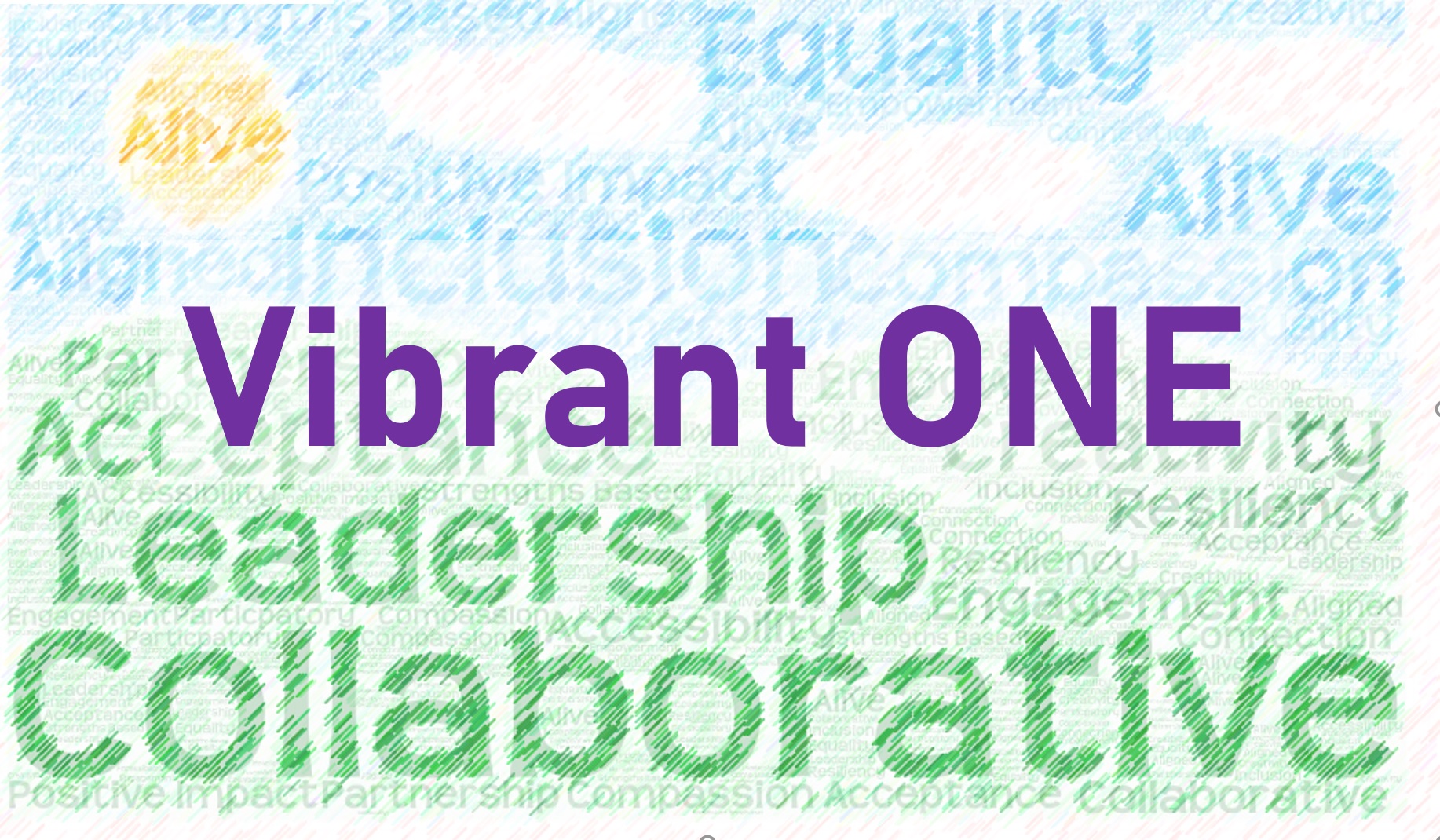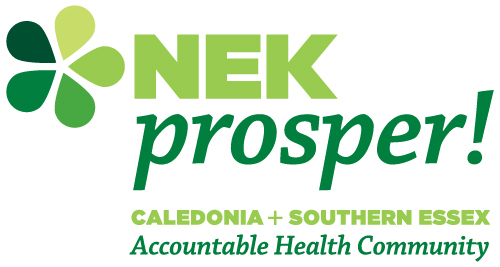
Orleans & Northern Essex Accountable Health Community
We envision a vibrant, thriving, safe and inclusive Orleans and Northern Essex community. We work collaboratively toward our shared vision: building on the strengths of our community; honoring voice and choice; and fostering health and wellness, dignity and respect.
Who We Are
Vibrant ONE Network members have strong expertise, influence, interest and/or resources in area of focus. Current Vibrant ONE members include representatives from:
-
Community
-
Journey to Recovery Community Center
-
NAMI
-
NEKCA
-
NEK Collaborative
-
NEKLS
-
NKHS
-
North Country Hospital
-
Northeast Kingdom Council on Aging
-
Northeast Kingdom Organizing
-
Northern Counties Health Care/Island Pond Health & Dental Center
-
Powered Magazine
-
SASH/RuralEdge
-
SaVida
-
Umbrella
-
VT Agency of Human Services
-
VT Department of Health
-
VT Foodbank
Wicked Problem/Opportunity #1
We are not providing the right mental health/substance misuse care, at the right place at the right time, every time and too many in our community are getting stuck at the wrong level of care/ wrong care location. This is frustrating, costly, and ineffective.
Shared Aspiration #1
Everyone living in Orleans/No. Essex will have easy access to person-centered and coordinated mental health and substance misuse services that are timely, close to home, at the appropriate level and with the appropriate transition supports for continued success in a person’s home community.
Root Causes (what is holding the problem in place?)
People End Up in Crisis and in the ER
- People discharged back to the community or ‘home’ with no other alternative or intermediate placements
- Process of EE can be confusing to the community –‘why were they discharged?’; ‘Why can’t you hold them?’
- Stigma and community fear
- Knowledge of current services to reach out to, before the ER
- Isolation and loneliness (exacerbated by COVID)
- PIP and CARE Bed are in St. J. only
- Children’s specific crisis supports
Lack of Adequate Supports for Detox and Sober Living
- Hub and Spoke–NEK has the fewest spokes in the State and reduced access to Medication Assisted Treatment (MAT) and Rapid Access to Medication (RAM) services
- No social detox programs in our area
- Navigating insurance process to access services –especially for underinsured or uninsured
- Timing of access to services –no same-day services
Lack of Understanding of the Design / Performance of Current System Access
- Capacity to serve the need (staffing, funding, facilities)
- Access of information (even among providers) –where do you find services/resources?
- Community engagement –opportunities to learn or engage with the system
NIMBYism–People are generally supportive of services until they are located near them
WIFM–“What is in it for me?” –needs to be addressed
Sharing of data –what has been accomplished in the area
Lack of Qualified Workforce (Pay -Stress &Burnout -Stigma)
- Expense of Education–Expense of education does not translate into higher paying job for social service work
- Geography–Rural, remote, low population, limited housing options
- Technology –Telehealth and internet access gaps
- Education capacity –There is an interest but the pipeline is backed up –e.g. Nursing –schooling and education…
- Lack of capacity of MH Peer Supports/Certification and ability to bill for services
- Limited infrastructure
How we’ll know we’re making a difference:
Funded projects
Progress made on funded projects
Fewer ED visits for MH/SUD
Shorter ED stays for MH/SUD
More texts to Crisis Text Line
More calls to 988
More local options for “less than crisis-level care”
Decrease in poor mental days
Reduced opioid deaths
Reduced suicide deaths
Increased access to MAT
Increased access to RAM
More MAT providers
More MH/SUD providers
Get Involved
Vibrant ONE meets virtually every month on the fourth Friday of the month from 10:00-11:30am
The Backbone/Design Team meets virtually every month on the second Friday of the month from 2:00-3:00pm
Project workgroups meet at different times.
To find out more, please contact the Backbone Integrator Kari White (she/her), Director of Community Health Equity for Northern Counties Health Care at kariw@nchcvt.org or 802.274.2344.
Values/Agreements
As we work together we agree to:
Respect: Listening to understand. Listening twice as much as speaking. Asking for clarity. Respecting choice (to share or not share). Fostering curiosity. Practicing “Oops, Ouch, Whoa.”
Honesty and Accountability: Showing up on time. Saying what you mean and meaning what you say. Walking the talk. Doing what you say you’ll do.
Compassion and Kindness: Assuming good intent. Maintaining an open mind. Smiling a bit.
Commitment and Patience: Staying at the table – even if it becomes uncomfortable. Practicing getting comfortable with feeling uncomfortable. Finding sustainable Seeking to understand rather than know. Participating in the spirit of learning. Acknowledging progress, not perfection.
Difference and Inclusion: Upholding a “No wrong answers – just differences” attitude. Supporting a diversity of opinion. Allowing individuality. Accepting respectful disagreement. Allowing space for all voices to count. Caring about what others say. Encouraging creativity.
Hope
Theory of Change
If we:
- Create a strong container “to assist participants with the inner game of personal change”,
- Ground the work in data and context, and target solutions,
- Focus on systems change, in addition to programs and services,
- Shift power within the collaborative,
- Listen to and act with community, and
- Build equity leadership and accountability;
We will achieve our Vision.
Strategies to Address Root Causes
- Community Engagement, Community Leadership and Community Solutions
- Resource/Asset/System Mapping
- Peer Support
- Capacity Building (knowledge, skills and practices) for Professionals and Community
- Working to Reduce Isolation, Stigma, Fear and Mindsets like ‘Us and Them’ (Storytelling)
Projects We Funded
Journey to Recovery Community Center (JTRCC): JTRCC is working to reduce the frequency of fatal and non-fatal overdoses in the Orleans/Northern Essex region. Behavioral health patients are discharged from North Country Hospital’s emergency department when they no longer meet medical criteria to stay, whether or not the patient has a safety plan or is at risk for a fatal overdose. The social detox bed at JTRCC will give patients the opportunity to create a solid safety plan and/or a safe place to rest while awaiting admission to residential care. See news article here.
NEK Collaborative and Northeast Kingdom Organizing (NEKO): The NEK Collaborative and NEKO are working to steward a variety of initiatives to complement the existing work of the Working Communities Challenge, which is based on reducing generational poverty through increases in social capital, community engagement, and access to health and other resources. Our project is driven by relationships and our goal is to build leadership in these communities that will then build a movement of other engaged community members working towards equitable, community-driven solutions. See Northeast Kingdom Organizing
Market Decisions Research: Helping Vibrant ONE to accurately document the experience of individuals as they journey through the NEK behavioral health system of care as well as the critical decision points or system constraints that providers face as they try to help navigate an individual’s treatment through the current system of care. Additionally, MDR will help document all the services and assets within our current system. See presentation here.
Powered Magazine: COVID-revealed disparities in healthcare in BIPOC communities are no longer possible to ignore. Powered Magazine was founded in October of 2020 to be part of a solution to promote the health of BIPOC, and launched our pilot program to provide opportunities for BIPOC to actively engage in the outdoors as Vermont was entering its first winter of shelter in place (isolation) due to the pandemic. Because BIPOC continues to be under-represented, under-resourced, and under-acknowledged in the outdoors due to a long history of racism, exclusion, and oppression in the white-dominated outdoors, Powered is partnering with established organizations and businesses to remove barriers to education, economic, and social structure for BIPOC so that BIPOC can actively engage in outdoor activities, learn and feel the health benefits and the joy in reconnecting with the outdoors. See news article here.
Umbrella, Inc.: Creating and providing a prevention-oriented, confidential warm line service specifically designed to be as accessible as possible to any member of the NEK impacted by domestic violence (DV), no matter their physical location (rurality), criminal location (where they are at in a criminal proceeding), or social location (marginalization or stigmatization). Typically, interrupting domestic violence means involving the criminal justice system and oftentimes takes place after acts of violence have already happened. For marginalized and stigmatized individuals in our community, such as those who misuse substances or People of Color, involving the criminal justice system is not a safe or realistic option and so instances of violence go uninterrupted and cycles of violence remain unbroken. This project is supported by a 3 month NEK accountability needs assessment in which we gathered feedback that speaks to the desire and demand for this kind of service, and it centers the participation and feedback of POC and those with lived experience of DV, and accountability via their participation on the project’s Advisory Committee. See theSpark flyer here.
Vermont Learning-Support Initiative (VLSI): Piloting NEK-wide community- and school-based efforts to engage with and support local neurodivergent learners and their families, through afterschool programming for middle-school students and regular family-inclusive meetings featuring discussions, presentations, and affirming activities. We will also expand our efforts to the same population in the St. Johnsbury area. By sharing experiences and finding common ground, our goal is to promote self-esteem and resilience in parents and their youth, who know the painful reality of being marginalized and stigmatized because they learn differently. To learn more about neurodiversity, visit this webpage.
More
- See here for a document about the history, structure and ongoing work of Vibrant ONE.
- See this webpage for more about the Community Health Equity Project Funding process.
